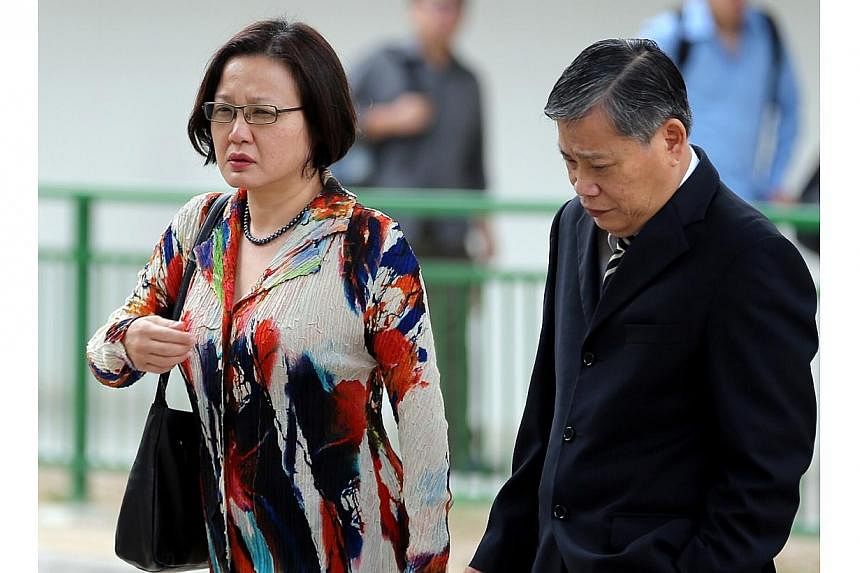SINGAPORE -Workers' Party chairman Sylvia Lim set out in a district court on Wednesday why her town council went ahead with a Chinese New Year fair although it did not have a permit for it.
She also said the Aljunied-Hougang-Punggol East Town Council (AHPETC) had been above board in the matter as it took the first step in approaching the National Environment Agency (NEA) on Dec 20 last year, to ask whether a permit was needed.
It had done so because of "some confusion on the ground" over NEA policies, she said.
Ms Lim, who chairs the town council, said she had understood from people in the industry - whom she did not name - that NEA was "not interested to look into events where there was no open food sold and events of a small scale (of) 15 stalls or less".
The event from Jan 9 to Jan 30, held in a 560 sq m space between Blocks 811 and 814, had five stalls selling festive decorations, cookies and potted plants, among other things.
Ms Lim, who is also a MP in Aljunied GRC, added: "I decided it was important for the town council to initiate the communication with the NEA. This was to show that we didn't mean to hide anything."
She was testifying on the second day of a trial to decide if AHPETC had flouted the law in holding the fair without a permit in January this year.
The town council claims it was a "community event" or a "mini-fair", and is disputing NEA's assertions that it was a "trade fair" or a "temporary fair", and as such required a permit under Section 35 of the Environmental Public Health Act. Under the law, a permit is required for "any temporary fair, stage show or other such function or activity".
On Dec 23 last year, NEA replied to AHPETC's e-mail saying it required a permit, and sent them application forms for a "trade fair permit" and a "trade fair foodstall license".
But the town council deemed the forms were "not suitable or relevant" as they were meant to be filled up by the appointed fair operator. The event, however, was organised by the town council itself and there was no such "appointed operator''.
Ms Lim added yesterday that she understood a "trade fair" to mean what is coloquially known as "pasar malam" (night market).
Further, among the conditions for permits to be granted was a letter of approval from the Citizens' Consultative Committee (CCC) of the area. Ms Lim noted that Hougang Central Hub, the site of the fair, fell under the ambit of the Bedok Reservoir-Punggol CCC, which is chaired by a People's Action Party grassroots leader.
"Since my colleagues and I were elected to manage the town council under the Town Councils Act, we do not see how the town council should be required to get a supporting letter from the CCC for something held in the common area under our charge," she said, adding that she understood their duties under the Act to include management of common areas.
She will be cross-examined on Thursday.
Earlier on Wednesday, the prosecution dismissed the AHPETC lawyer's argument that a "mini-fair'' did not need a permit from the NEA.
NEA lawyer Isaac Tan said: "(The law) makes no distinction between mini-fairs and what has been termed for the purposes of contrast as 'large fairs'. (It) only talks about temporary fairs with no reference to size."
He added: "A suggestion that a 'mini-fair' would not be subject to a permit requirement under Section 35 is misconceived."
If found guilty, the town council can be fined up to $1,000. For subsequent convictions, the maximum punishment is a fine not exceeding $4,000 and a jail term of up to three months.


